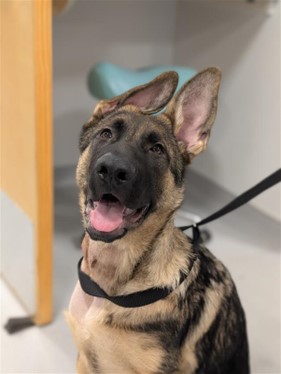Common Health Issues in Senior Dogs in Kirkland, WA

Common Health Issues in Senior Dogs in Kirkland, WA
As your beloved pet ages, it's essential to keep an eye out for potential health issues that may arise. Typically, a dog is considered a senior around the age of seven, but this can differ depending on the breed and size. As dogs get older, they become more prone to illness and disease, resulting in them generally “slowing down”. Common signs of aging in dogs include a decrease in energy levels when exercising, diminished agility and mobility, and overall slowdowns in behavior. The following are some of the most common health problems seen in senior canines.
Blindness in Senior Dogs
One of the most common problems that senior dogs face is the development of cataracts, which is a cloudy layer that forms over the lens of the eye and can cause partial or total blindness. Fortunately, even without surgery to remove cataracts, dogs can still get around well due to their sense of smell and hearing. If you suspect your dog is going blind, make an appointment with your veterinarian at L & L Animal Urgent Care.
Deafness in Senior Dogs
Another common occurrence for older dogs is to lose their hearing gradually. Many issues from genetics to chronic ear infections can cause hearing loss and deafness. While deaf dogs may not be able to hear you talking, they will be able to feel the vibrations on the floor while you approach, making it easier to navigate their surroundings.
Cognitive Dysfunction in Senior Dogs
Deterioration in your dog's mental ability is referred to as canine cognitive impairment. It's comparable to Alzheimer's disease in people. Confusion, whining or barking for no apparent reason, appearing to become disoriented in familiar situations, and toilet accidents can all be symptoms. These signs can also be indicative of other illnesses, so it's best to consult your veterinarian at L & L Animal Urgent Care if you notice them in your dog.
Cancer in Dogs
Cancer is more common in older dogs, so it's important to get any unusual lumps looked at with frequent exams or cancer screenings, which can help detect cancers that aren't easily seen or felt. Furthermore, cancer treatment choices differ based on the kind and stage of the disease, but the earlier it is detected, the greater the chances of survival.
Heart Problems in Dogs
Heart illness is prevalent in older dogs, but it can deteriorate with time, leading to congestive heart failure, which happens when the heart is unable to pump blood properly and fluid backs up in the heart, lungs, and chest cavity. Coughing, trouble breathing, exercise intolerance, loss of consciousness, and unexplained vomiting are all signs of potential heart disease and should be checked out by a veterinarian immediately.
Arthritis
As your pup gets older, their joints may start to stiffen up due to age-related wear and tear. This condition is known as arthritis or osteoarthritis. It is caused by the breakdown of the cartilage that cushions the bones in the joints, leading to inflammation and pain. Signs of arthritis include limping, stiffness after resting or sleeping, difficulty jumping up or down from furniture or stairs, reluctance to exercise, and difficulty climbing steps. Your vet can help you diagnose this condition and discuss treatment options with you.
Joint Disease
In technical terms, joint disease is a degenerative condition in which the cartilage wears away between the bones of a joint, leading to inflammation and pain. This can occur due to an injury or infection, or it can be degenerative, meaning it’s caused by age-related wear and tear on the joints. The symptoms of joint disease and arthritis are pretty similar, except joint disease might cause your pet to yelp or whine when touched near the affected area. Other symptoms include swelling around a joint, licking a specific area excessively, and panting after mild activity levels.
Pain Management for Senior Dogs
We approach pain management from a multimodal aspect, with Non-steroidal anti-inflammatories as the gold standard, but additional nutraceutical and analgesics are often needed for optimal pain control.
Taking care of our pets is one of our most important responsibilities as pet owners – especially when it comes to elderly animals who rely on us for their well-being. Remember, senior dogs are far more vulnerable to illness and disease than younger dogs, so if any of these issues arise, make sure to get in touch with L & L Animal Urgent Care immediately. We are here to help you and your senior furry friend stay happy and healthy!




.png)














